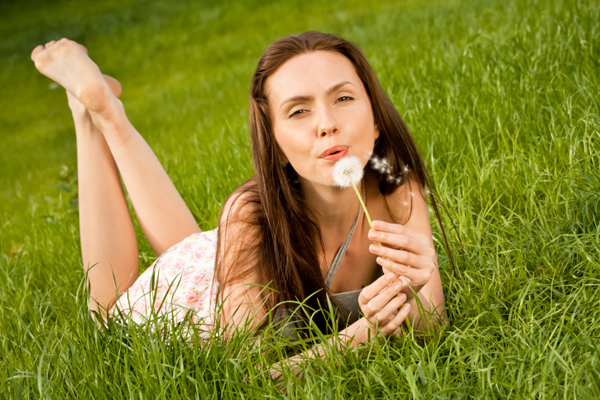
Runny noses and watery eyes are unwelcome signs of spring for allergy suffers. It doesn't help that rising temperatures mean the pollen starts swarming earlier and earlier. While it's impossible to rid yourself of allergies completely, there are ways to make living with them more comfortable.
Springtime translates into airborne pollen, one of the biggest contributors to unending sneezes and itchy, irritated eyes. Found in spring blooming trees like elm, oak, cypress and many others, pollen can trigger a big allergy attack. If you suffer from spring allergies, it means your body sees the offending pollen as a foreign invader, which the immune system tries to kill by releasing antibodies. Unfortunately, this translates into the release of histamines and the physical symptoms typical for an allergy sufferer.
Antihistamine medications are a popular way to dodge allergy symptoms, but there are also other things you can do to avoid pollen's problems:
• Invest in a vacuum with a HEPA filter and a portable HEPA filter for the home. Pollen brought in from the outdoors will be caught and help you steer clear of allergic reactions.
• Don't go outside early in the morning when pollen levels are at their highest, and make sure you shower before going to bed to wash off any allergens that attached themselves to your skin and hair.
• Also, there are certain antioxidant-rich foods that can help fight against inflammation inside the body. Veggies, fruits, nuts and green tea are all good options.
• Finally, make sure you pass up spring trips to these cities! The Asthma and Allergy Foundation named them the Top 10 allergy cities for allegies in the country:
- Knoxville, TN
- Louisville, KY
- Chattanooga, TN
- Dayton, OH
- Charlotte, NC
- Philadelphia, PA
- Greensboro, NC
- Jackson, MS
- St. Louis, MO
- Witchita, KS
Runny noses and watery eyes are unwelcome signs of spring for allergy suffers. It doesn't help that rising temperatures mean the pollen starts swarming earlier and earlier. While it's impossible to rid yourself of allergies completely, there are ways to make living with them more comfortable.
Springtime translates into airborne pollen, one of the biggest contributors to unending sneezes and itchy, irritated eyes. Found in spring blooming trees like elm, oak, cypress and many others, pollen can trigger a big allergy attack. If you suffer from spring allergies, it means your body sees the offending pollen as a foreign invader, which the immune system tries to kill by releasing antibodies. Unfortunately, this translates into the release of histamines and the physical symptoms typical for an allergy sufferer.
Antihistamine medications are a popular way to dodge allergy symptoms, but there are also other things you can do to avoid pollen's problems:
• Invest in a vacuum with a HEPA filter and a portable HEPA filter for the home. Pollen brought in from the outdoors will be caught and help you steer clear of allergic reactions.
• Don't go outside early in the morning when pollen levels are at their highest, and make sure you shower before going to bed to wash off any allergens that attached themselves to your skin and hair.
• Also, there are certain antioxidant-rich foods that can help fight against inflammation inside the body. Veggies, fruits, nuts and green tea are all good options.
• Finally, make sure you pass up spring trips to these cities! The Asthma and Allergy Foundation named them the Top 10 allergy cities for allegies in the country:
- Knoxville, TN
- Louisville, KY
- Chattanooga, TN
- Dayton, OH
- Charlotte, NC
- Philadelphia, PA
- Greensboro, NC
- Jackson, MS
- St. Louis, MO
- Witchita, KS















